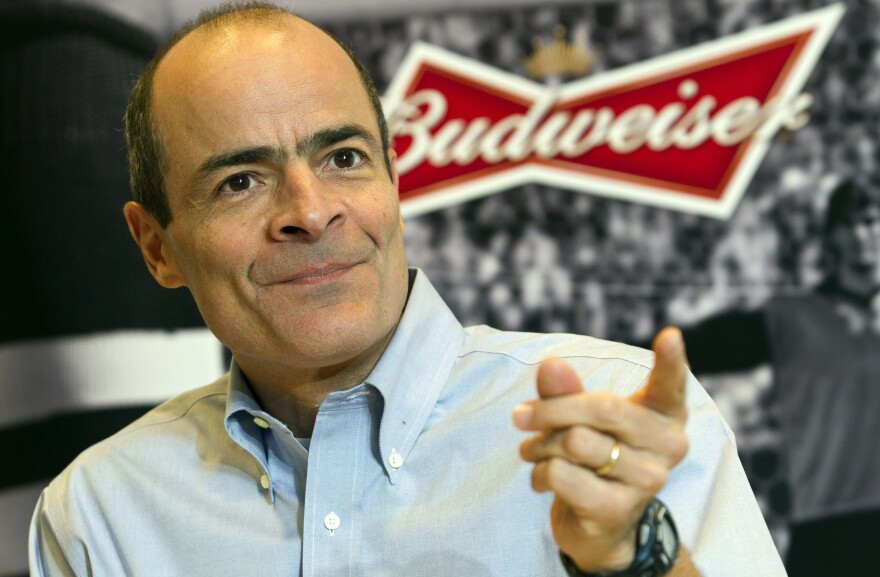A Brobdingnagian beer company is closer to becoming reality, as Anheuser-Busch InBev has worked out terms to buy its biggest rival, SABMiller, for more than $105 billion. The deal includes a $12 billion sell-off of MillerCoors to Molson Coors, to ease antitrust concerns.
The update comes nearly a month after SABMiller finally accepted a buyout offer from Budweiser brewer Anheuser Busch InBev, a move that came after several rejections.
From Brussels, Teri Schultz reports:
"AB InBev, based here in Belgium, already is the biggest player in the U.S. market, with brands such as Budweiser and Stella Artois. Now the SABMiller takeover will mean one out of every three beers drunk in the world comes from that company.
"That creates competition questions, of course, and SABMiller will have to sell its 58 percent share in MillerCoors to try to ease regulators' concerns."
Molson Coors and SABMiller have operated MillerCoors as a joint venture since 2008. In the U.S., MillerCoors controls brands such as Pilsner Urquell and Peroni.
The merger isn't expected to be finalized until the second half of 2016.
AB InBev has labeled this merger as an effort to "create a truly global brewer" – and a beer giant that still has more room to grow. The company also says the combined company "would be able to provide more choice and more opportunities for consumers to taste and enjoy the world's best beers."
The company also says that after the merger, it would operate "in virtually every major beer market, in new and existing markets around the world."
The deal is likely to have global repercussions for the beer industry — both in the U.S., as the Molson Coors deal shows, and in areas where SABMiller is the dominant beer company, notably in Australia and large sections of India, Eastern Europe and Africa.
Copyright 2021 NPR. To see more, visit https://www.npr.org.


